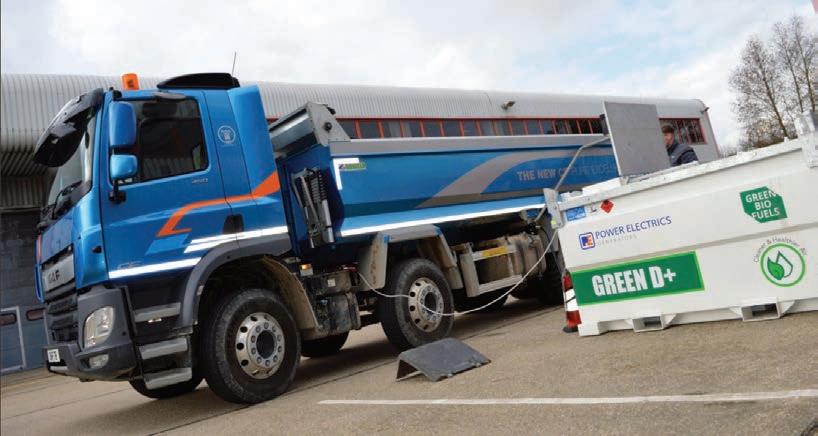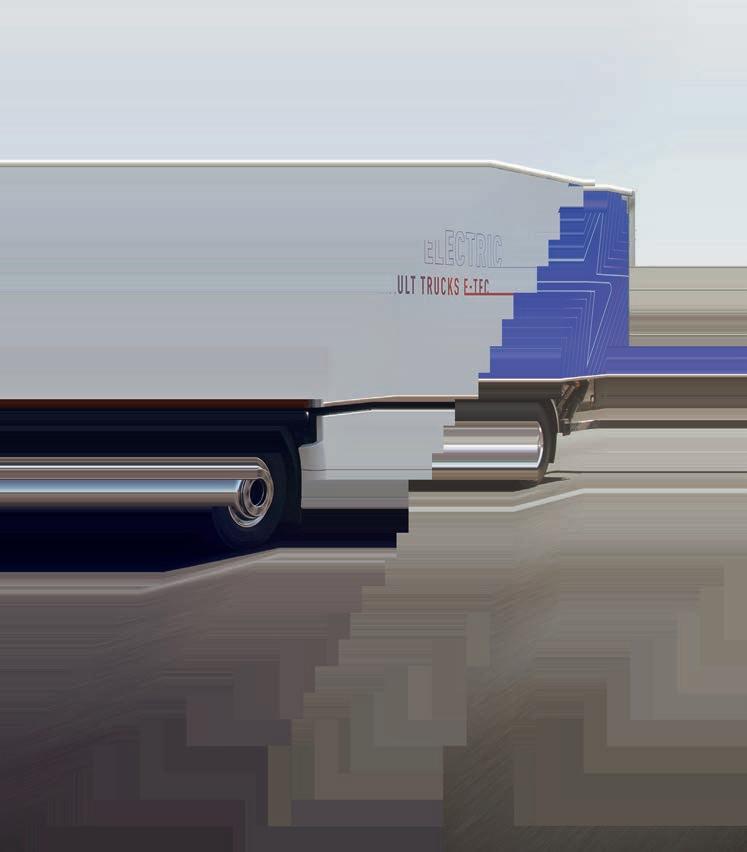
3 minute read
As the EC increases pressure for freight decarbonisation, fuels Renewables show the way to zero emissions
The European Commission’s newly published proposals to tighten emissions standards for heavy-duty vehicles (HDVs) over the next two decades will put further pressure on the industry to accelerate change. This would mean reversing the decade-long trend of rising greenhouse gas emissions across the European HDV sector (with the exception of the pandemic year, 2020), driven mainly by the growth in road transport demand – a trend not expected to go into reverse any time soon.
The vast majority of HDVs in the EU fleet (99%) still run on internal combustion engines, fuelled largely by imported fossil fuels (mostly diesel). This, of course, adds to the EU’s dependency on volatile energy markets.
Advertisement
Unambitious
The sector has successfully driven down locally polluting emissions through the progressive tightening of the Euro emissions standards, but CO2 has been another story.
Environmental groups criticised the EC-proposed targets (for certified CO2 emissions reduction targets for HDVs of 45% from 2030, 65% from 2035 and 90% from 2040), saying that they are not ambitious enough and will mean that we won’t see the rapid electrification of trucks that we have seen for cars.
Currently, though, renewable low-carbon fuels contribute a third of all carbon savings from road transport. While electrification (or variations of it) may well be the end game for most trucks as well as cars, vans and buses, in the short- and medium-term vital savings can be made from the adoption of low-carbon fuels in the freight sector.
The UK’s 2021 Transport Decarbonisation Plan recognised the need to maximise the benefits of low-carbon fuels, setting out commitments to develop a strategy for them to 2050 and to send a clear signal to stakeholders about the government’s vision for the sector.
To help inform the government’s strategy preparations, Zemo recently published the results of a wide-ranging stakeholder consultation held last year, involving 119 organisations from 13 different stakeholder groups. In total, 28 workshops were held, covering seven different themes. This stakeholder engagement process showed a clear desire to
■ For all the latest news and information dedicated to the decarbonisation of the commercial vehicle and road freight sector, check out our sister website FreightCarbonZero.com increase the use of decarbonised fuels to ensure that carbon savings are achieved as early as possible.

Uncertainty
The Renewable Transport Fuel Obligation (RTFO) is currently the key measure to incentivise the supply of low-carbon fuels. The RTFO has set a target to supply 14.6% renewable fuel in transport by 2032.
Stakeholders said that both liquid and gaseous low-carbon fuels in higher blends than are incentivised through the RTFO can play a key role in decarbonising road transport (as well as aviation and shipping) but they added that more certainty is needed about the government’s plans to enable industry and investors to fully seize the opportunity.
They expect a variety of liquid and gaseous low-carbon fuels to play a role in road transport decarbonisation as well as for non-road mobile machinery (NRMM), rail, maritime and aviation over the next three decades.
Stakeholders said that finding agreement around common standards for ensuring low-carbon fuels’ sustainability performance is vital, as is clarifying other risks and opportunities. Clear comparisons of the life-cycle emissions of competing fuel options are needed to ensure we make the right policy choices.
Participants emphasised that early reductions in greenhouse gas emissions achieved through the introduction of low-carbon fuels will help to pave the way to zero-emissions transport in the longer term, and help to ensure that we are able to meet our ultimate net-zero target.
A common theme arising from many workshops was that ramping up the adoption of low-carbon fuels for road transport would be a ‘no regrets’ opportunity; should the transition to electrification proceed more slowly than expected, lowcarbon fuels can provide an important insurance policy to enable early and ongoing greenhouse gas emissions reductions.
No excuses
Zemo, of course, continues to push for zero tailpipe emissions across all sectors, so using a lowcarbon, renewable fuel should certainly not be used as an excuse to delay the adoption of zeroemissions vehicles where it already makes economic and operational sense to do so. Conversely, the promise of future zero emissions should not provide an excuse to delay decarbonisation through the use of lowcarbon fuels while we transition.
■ Andy Eastlake, CEO, Zemo Partnership


















